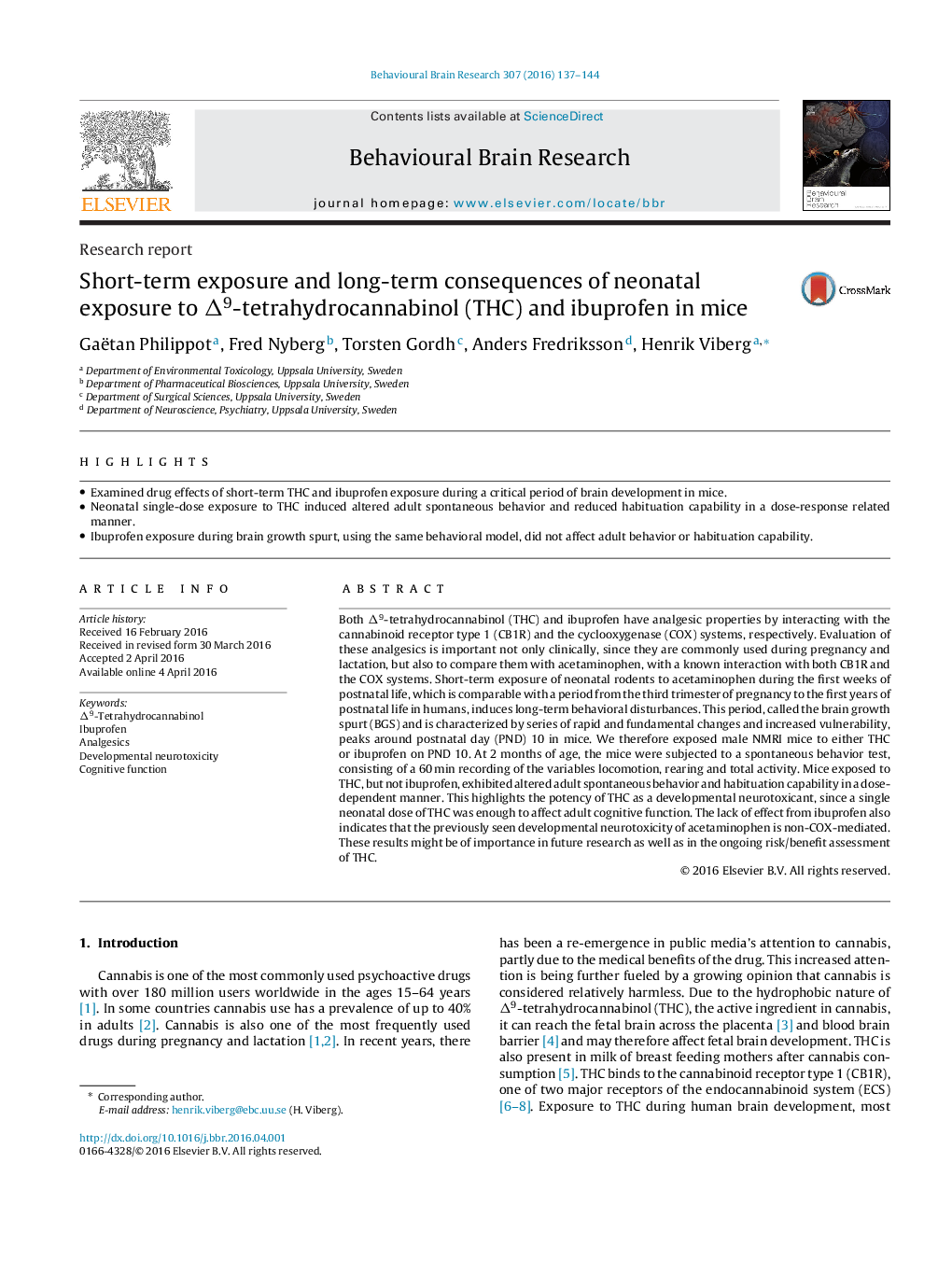| Article ID | Journal | Published Year | Pages | File Type |
|---|---|---|---|---|
| 4312262 | Behavioural Brain Research | 2016 | 8 Pages |
•Examined drug effects of short-term THC and ibuprofen exposure during a critical period of brain development in mice.•Neonatal single-dose exposure to THC induced altered adult spontaneous behavior and reduced habituation capability in a dose-response related manner.•Ibuprofen exposure during brain growth spurt, using the same behavioral model, did not affect adult behavior or habituation capability.
Both Δ9-tetrahydrocannabinol (THC) and ibuprofen have analgesic properties by interacting with the cannabinoid receptor type 1 (CB1R) and the cyclooxygenase (COX) systems, respectively. Evaluation of these analgesics is important not only clinically, since they are commonly used during pregnancy and lactation, but also to compare them with acetaminophen, with a known interaction with both CB1R and the COX systems. Short-term exposure of neonatal rodents to acetaminophen during the first weeks of postnatal life, which is comparable with a period from the third trimester of pregnancy to the first years of postnatal life in humans, induces long-term behavioral disturbances. This period, called the brain growth spurt (BGS) and is characterized by series of rapid and fundamental changes and increased vulnerability, peaks around postnatal day (PND) 10 in mice. We therefore exposed male NMRI mice to either THC or ibuprofen on PND 10. At 2 months of age, the mice were subjected to a spontaneous behavior test, consisting of a 60 min recording of the variables locomotion, rearing and total activity. Mice exposed to THC, but not ibuprofen, exhibited altered adult spontaneous behavior and habituation capability in a dose-dependent manner. This highlights the potency of THC as a developmental neurotoxicant, since a single neonatal dose of THC was enough to affect adult cognitive function. The lack of effect from ibuprofen also indicates that the previously seen developmental neurotoxicity of acetaminophen is non-COX-mediated. These results might be of importance in future research as well as in the ongoing risk/benefit assessment of THC.
